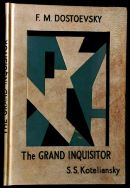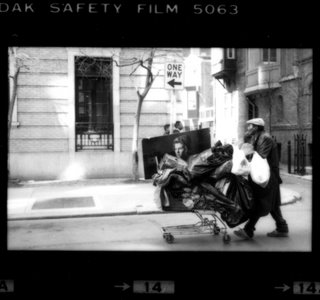20 March 2006
ART: Grand Inquisitor Offers Restorative

The Exquisite Terror Of "All Is Permitted"
I found an old copy of Brothers Karamazov buried in a beach house shelf. I took it out and like I always do when I thumb through Dostoevsky's last novel, I look in the table of contents for the Grand Inquisitor chapter. This is a great little fable that one of the Karamazov brothers relates. It is a pitch perfect parable for our dark and stormy moment in time.
Translation Alert: Only read Dostoesvsky in a modern translation. The Pevear/Volokhonsky translation I can attest is nice and new.
The Grand Inquisitor story is one that Ivan Karamazov has conceived and hopes to develop into something. It is set in Inquisition era Spain. Christ has returned to earth for a second time. He arrives in Spain and is caught by the authorities making a miracle. The Grand Inquisitor has the Lord imprisoned and then goes and lecture Jesus personally.
Essentially he tells the Son of God, in chains in a filthy prison, that His presence is neither required or desired. The Grand Inquisitor informs Christ that people did not want what He was peddling. They wanted indeed the opposite. The Inquisitor, a humble religious man, provided people with the opposite. He could be considered the opposite's primary representative. He continues to abuse Jesus like this for a while, condemns him to death and the story ends.
This chapter nicely exemplifies Dostoesvky's best aspects as a writer. He aimed for that place where melodrama meets metaphysical and hopefully there can be found within the unbearable a glimpse of the eternal sacred (before all is overwhelmed by madness before dawn.)
He was past 60 when he wrote this book, nearing the end of a life so fraught with torment only a Russian could have survived to write about it. In Brothers Karamazov, FD wrote a great novel and within it a great short story. It is a tale best forgotten quickly after reading it, lest its unspeakable epiphanies deform our souls.
###

